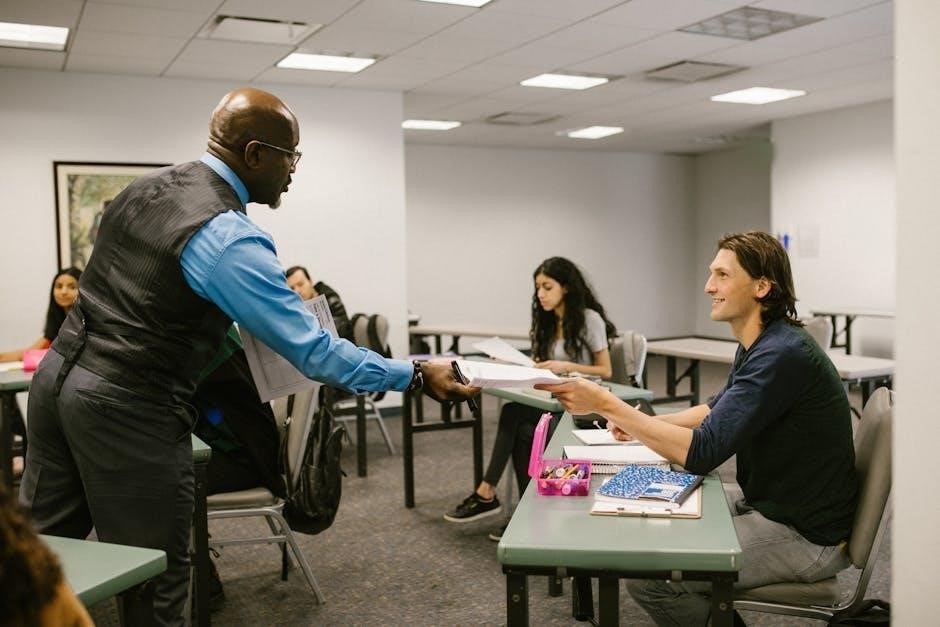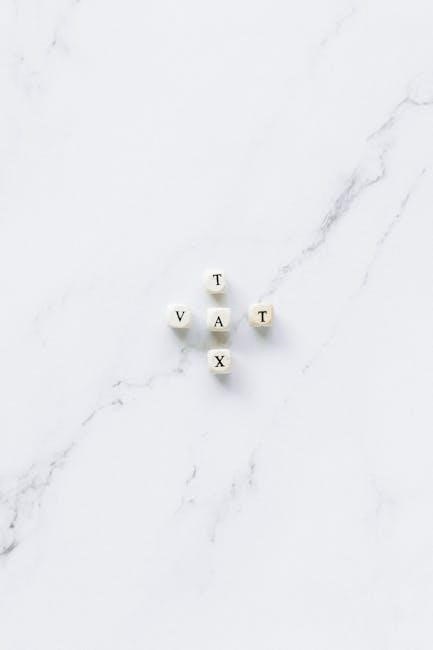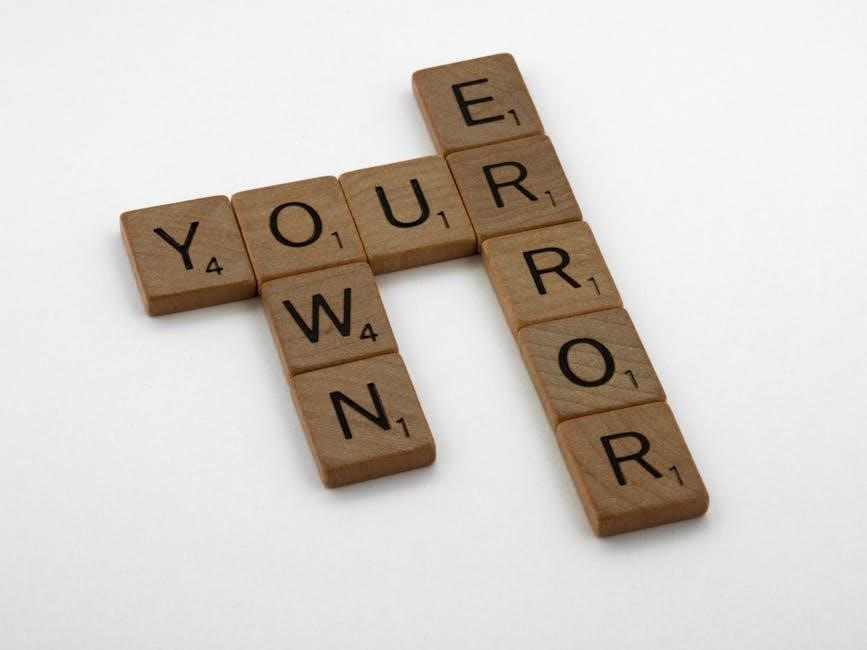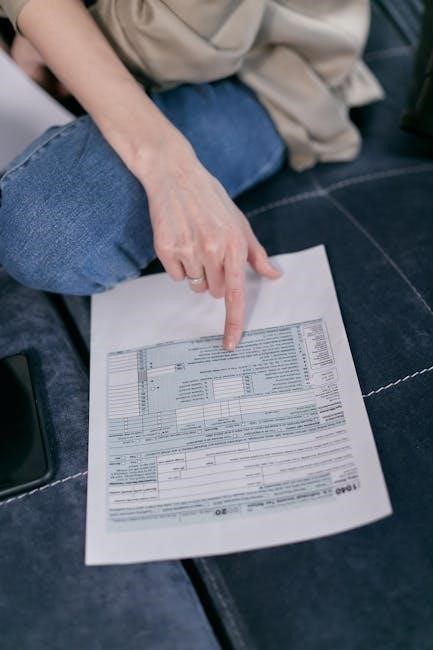Crossword puzzles are engaging word games that challenge the mind, offering mental stimulation, cognitive improvement, and the thrill of solving clever clues, fostering a sense of achievement and relaxation․
1․1 What Are Crossword Puzzles?
Crossword puzzles are word games where words are filled into a grid of squares․ They typically consist of clues for both “Across” and “Down” directions, challenging solvers to decipher words that fit both vertically and horizontally․ The clues often require knowledge of synonyms, anagrams, and sometimes general knowledge․ Crossword puzzles are popular in newspapers, magazines, and online platforms, offering entertainment and cognitive benefits․ They vary in difficulty, from simple puzzles for beginners to complex ones for experienced solvers․ The goal is to fill the entire grid correctly, enhancing vocabulary and problem-solving skills․
1․2 The Popularity of Crossword Puzzles
Crossword puzzles are a beloved activity worldwide, enjoyed by millions in newspapers, magazines, and online platforms․ Their widespread appeal lies in their ability to challenge the brain while providing entertainment․ Solvers of all ages and backgrounds engage with crosswords, making them a universal pastime․ The puzzles are often seen as a mental workout, improving vocabulary and cognitive skills․ Their accessibility and portability contribute to their enduring popularity, whether solved traditionally on paper or through digital apps․ Crosswords remain a timeless form of intellectual enjoyment․
1․3 Why People Enjoy Solving Crosswords
Solving crosswords is a source of enjoyment for many due to its mental stimulation and relaxation benefits․ It challenges the brain, enhancing vocabulary and logical thinking while providing a sense of accomplishment with each solved clue․ The activity can be both a solitary hobby and a social one, fostering connections among enthusiasts․ Additionally, crosswords offer an escape from daily stress, making them a popular leisure activity that combines fun with intellectual growth․

Understanding the Clue “What May Precede Your Instructions”
The clue “What May Precede Your Instructions” suggests a word that naturally comes before instructions, with “please” being the most fitting and common answer․
2․1 Breaking Down the Clue
The clue “What May Precede Your Instructions” requires identifying a word that naturally comes before “instructions․” Common preceding words include “please,” “attention,” or “note․”
2․2 The Meaning of “Precede” in Crosswords
In crossword puzzles, “precede” refers to a word or phrase that logically comes before another word, often indicating sequence or order․ For the clue “What May Precede Your Instructions,” solvers must think of a word that naturally appears before “instructions” in common language․ This could be an action, a command, or a preparatory phrase․ The term “precede” guides solvers to focus on words that introduce or set the stage for the following instruction, helping narrow down potential answers․
2․3 The Role of “Instructions” in the Clue
In the crossword clue “What May Precede Your Instructions,” the word “instructions” plays a central role by providing the context for the answer․ It refers to a set of directions or guidance, and the solver must identify a word or phrase that naturally comes before such directions․ The word “instructions” acts as the anchor, helping narrow down potential answers by focusing on what logically introduces or precedes a set of directions․ This clarity makes it easier to pinpoint the correct word that fits the crossword’s requirements․

Possible Answers to the Crossword Clue
The answer to the crossword clue “What May Precede Your Instructions” is likely “first,” as it logically comes before “instructions” in both order and sentence structure․
3․1 The Word “May” as a Possible Answer
The word “may” could logically precede “instructions” in certain contexts, functioning as a polite verb or auxiliary․ For example, “May I have your attention” often introduces directions․ While “may” fits grammatically, it might not align with the crossword’s letter count or specific theme․ Crossword clues often seek concise, common phrases, so solvers should verify if “may” matches the available letters and the puzzle’s overall pattern․ Additionally, other words like “please” or “first” might be more likely answers, making “may” a less probable but still plausible option․
3․2 Other Potential Words That Precede “Instructions”
Besides “may,” other words like “please,” “attention,” or “note” often precede “instructions” in common phrases․ For example, “Please follow the instructions” or “Note the instructions below․” These words act as introductory phrases, setting the tone for the directions that follow․ In crosswords, the correct answer depends on the clue’s context and the available letter count․ Solvers should consider these alternatives and cross-reference letters from intersecting clues to determine the best fit․ Each option brings a slightly different nuance, so the right choice hinges on the puzzle’s design․
3․3 Verifying the Correct Answer
Verifying the correct answer involves cross-checking the word with the clue and ensuring it fits the crossword grid․ Solvers can use online crossword tools or dictionaries to confirm the accuracy of their answer․ Additionally, analyzing the context of the clue and the surrounding words can help validate the choice․ It’s essential to ensure the word logically precedes “instructions” and aligns with common phrasing․ This step minimizes errors and ensures the puzzle is solved correctly․ Verification is a crucial part of the crossword-solving process, especially for tricky clues․

Solving Strategies for Crossword Clues
Effective strategies include starting with easy clues, identifying word patterns, and using cross-references to fill in letters systematically․ This systematic approach enhances solving efficiency․
4․1 Using Synonyms to Find the Answer
To solve the crossword clue, consider synonyms for words related to preceding instructions․ For example, words like “Please,” “Note,” or “Attention” often precede instructions․ These synonyms can help narrow down the possible answers in a crossword puzzle․ By thinking of similar words, solvers can identify the most likely fit based on the clue and the available letters․ This strategy is particularly useful when the direct meaning isn’t immediately clear․ Using synonyms effectively can lead to the correct answer more efficiently․
4․2 Analyzing Word Length and Structure
Analyzing the length and structure of the answer is crucial for solving crossword clues․ For the clue “What may precede your instructions,” consider the number of letters in the answer․ Words like “Please” or “Note” fit common crossword patterns․ Pay attention to the starting letters, as they often align with familiar words․ Crosswords frequently use predictable structures, so identifying the word length and syllable count can help narrow down possibilities․ This method, combined with pattern recognition, makes solving crosswords more manageable․ It’s a practical strategy for both beginners and experienced solvers․
4․3 Cross-Referencing Letters from Other Clues
Cross-referencing letters from other clues is a powerful strategy for solving crossword puzzles․ By identifying overlapping letters from intersecting clues, you can fill in missing letters and narrow down possible answers․ For example, if a clue intersects with “instructions” and you’ve already filled in some letters, use those to deduce the preceding word․ This method helps build partial answers and reduces guesswork․ It’s an efficient way to leverage information from multiple clues, making the solving process more systematic and logical․ This technique is especially useful for tricky clues like “What may precede your instructions․”

Common Words That Precede “Instructions”
Common words preceding “instructions” often include “Please,” “Note,” or “Attention․” These words are frequently used to introduce or direct focus toward the instructions that follow․
5․1 “Please” as a Common Preceding Word
The word “please” is a common preceding word for instructions, often used to add politeness and courtesy․ In crosswords, “please” frequently appears as an answer due to its concise nature and relevance․ It softens directives, making them less abrupt, and is widely recognized in both spoken and written communication․ For example, phrases like “Please follow the instructions” or “Please complete the form” are commonplace․ Its universal usage makes it a strong candidate for crossword clues seeking words that precede “instructions․”
5․2 “Attention” as a Possible Preceding Word
The word “attention” often precedes instructions, particularly in formal or structured contexts․ It serves as a directive to focus or prepare for what follows, such as in military settings or public announcements․ For example, “Attention: Please follow the instructions carefully․” In crosswords, “attention” is a strong candidate due to its relevance and concise structure․ Its contextual use makes it a fitting answer for clues seeking words that precede “instructions,” especially in scenarios requiring focus or preparation․
5․3 “Note” as a Simple Preceding Word
The word “note” is a simple yet effective preceding word for instructions, often used to draw attention or provide additional information․ For example, “Note: Please follow the instructions below․” Its brevity and clarity make it a popular choice in both written and verbal communication․ In crossword puzzles, “note” is a likely answer due to its common usage and straightforward meaning․ It’s concise, making it a strong candidate for clues seeking words that naturally precede “instructions” in various contexts․

The Role of Context in Crossword Clues
Context significantly impacts crossword clues, helping solvers narrow down answers by understanding the broader theme or surrounding words that hint at the correct solution․
6․1 How Context Affects Possible Answers
Context plays a crucial role in crossword puzzles by narrowing down potential answers․ For the clue “what may precede your instructions,” the surrounding words and theme guide solvers․ If the crossword focuses on formal language, “Please” might fit, as it often precedes requests․ In a more casual setting, “Hey” could be appropriate․ The position of the word in the grid and related clues also provide hints, helping solvers eliminate unlikely options and arrive at the correct answer efficiently․
6․2 Understanding the Theme of the Crossword
The theme of a crossword provides essential clues about the answers․ For “what may precede your instructions,” the puzzle’s theme might steer toward formal language, suggesting words like “Please” or “Note․” In a casual theme, “Hey” could fit․ Themes help narrow down options, making the solving process more straightforward by aligning answers with the overall subject matter․
6․3 Using Crossword Themes to Narrow Down Answers
Crossword themes are crucial for identifying answers, as they often hint at the tone or subject matter․ For “what may precede your instructions,” the theme might suggest formal or casual language․ For instance, in a business-themed crossword, “Please” or “Note” might fit, while a casual theme could lean toward “Hey” or “Listen․” Recognizing the theme helps eliminate unrelated options, making it easier to pinpoint the correct word․ This strategy is especially useful when clues are vague, as the theme provides context to guide the solver․
Tools and Resources for Solving Crosswords
Utilize online crossword solvers, dictionaries, and anagram generators to assist with clues․ Apps like Crossword Solver and Dictionary․com aid in finding words and meanings efficiently․
7․1 Crossword Solver Websites and Apps
Popular tools like Crossword Clue Solver and Armored Penguin Crosswords help solvers quickly find answers․ Many websites offer advanced features such as anagram solvers and crossword grid generators․ Mobile apps like Crossword Puzzle Free and NYTimes Crossword provide on-the-go solutions․ These platforms often include databases of crossword clues and answers, making them invaluable for tricky puzzles․ Additionally, some apps use AI to suggest possible answers based on partially filled grids, streamlining the solving process․ These tools are essential for both casual and competitive crossword enthusiasts․
7․2 Dictionary Tools for Finding Synonyms
Dictionary tools like Merriam-Webster and Thesaurus․com are invaluable for finding synonyms, a crucial step in solving crossword clues․ These platforms allow users to search for alternative words that fit the context of the clue․ For example, when solving “what may precede your instructions,” synonyms like “may” or “please” can be explored․ Many dictionaries also provide example sentences, helping solvers understand word usage․ Additionally, browser extensions like Grammarly or apps like Crossword Buddy offer quick access to synonym lists, making the solving process more efficient and enjoyable․
7․3 Forums and Communities for Crossword Enthusiasts
Online forums and communities are excellent resources for crossword enthusiasts․ Platforms like Reddit’s r/CrosswordPuzzles or specialized crossword forums offer spaces to discuss clues, share strategies, and collaborate on challenging puzzles․ These communities often include experienced solvers and constructors who can provide insights or hints․ For clues like “what may precede your instructions,” such forums can reveal alternative words or phrases that fit the context․ Additionally, they often share links to tools, databases, and tips, fostering a supportive environment for both beginners and seasoned solvers to refine their skills and enjoy crosswords together․

Advanced Techniques for Expert Solvers
Expert solvers use advanced methods like anagram solving, pattern recognition, and word root analysis to tackle complex clues, enhancing their problem-solving efficiency and accuracy significantly․
8․1 Using Anagrams to Find Answers
Anagramming is a powerful technique for expert solvers, where letters from a clue are rearranged to form valid words․ For the clue “what may precede your instructions,” solvers might anagram words like “may” or “your” to uncover hidden answers․ For example, “may” can be rearranged to “amy” or “yam,” though these may not fit the context․ Anagrams are particularly useful when clues hint at wordplay or reversals, allowing solvers to think creatively and uncover less obvious solutions․ This skill sharpens with practice, making it invaluable for tackling tricky crosswords․
8․2 Recognizing Patterns in Crossword Clues
Expert solvers often recognize recurring patterns in crossword clues, such as wordplay, anagrams, or puns․ For the clue “what may precede your instructions,” solvers might notice a pattern where “precede” hints at a word that logically comes before “instructions․” This could involve common phrasing like “please” or “now․” Recognizing these patterns helps solvers anticipate the answer structure and narrow down possibilities more efficiently, making them faster and more accurate in solving crosswords․
8․3 The Importance of Word Roots and Prefixes
Word roots and prefixes are essential tools for expert crossword solvers, as they often reveal the meaning or structure of potential answers․ For the clue “what may precede your instructions,” understanding the root of “instructions” (instruct) can guide solvers toward words like “pre-” or “intro-․” Similarly, prefixes such as “re-” or “co-” might hint at words that logically precede instructions, like “repeat” or “coordinate․” By analyzing these elements, solvers can narrow down possibilities and solve clues more effectively, especially in challenging crosswords where every hint counts․

The History of Crossword Puzzles
Crossword puzzles were invented in 1913 by Arthur Wynne, with the first published in The New York World․ They gained popularity in the 1920s, becoming a cultural phenomenon and evolving into a staple of newspapers worldwide․ Over time, crosswords have adapted to changing tastes, maintaining their enduring appeal as a beloved intellectual pastime․
9․1 The Origins of Crossword Puzzles
The crossword puzzle was invented in 1913 by Arthur Wynne, a British-born American journalist․ The first puzzle, called a “word-cross,” was published in The New York World․ It featured a diamond-shaped grid with simple definitions and no black squares․ The concept quickly gained popularity, becoming a staple in newspapers by the 1920s․ Wynne’s innovative design laid the foundation for modern crosswords, blending wordplay and intellectual challenge into a beloved global pastime․
9․2 Evolution of Crossword Designs Over Time
Crossword designs have evolved significantly since their inception in the early 20th century․ Initially, puzzles were simple, with less emphasis on symmetry and thematic elements․ Modern crosswords often feature intricate patterns, themed rounds, and increased difficulty levels․ The rise of digital tools has enabled constructors to create more complex designs, while maintaining solvability․ This evolution reflects changing solver preferences and advancements in puzzle-making technology, ensuring crosswords remain engaging and challenging for new generations of enthusiasts․
9․3 Famous Crossword Constructors and Their Impact
Crossword puzzles have been shaped by legendary constructors who left lasting impressions․ Margaret Farrar, known as the “Queen of Crosswords,” introduced themed puzzles, revolutionizing the genre․ Will Shortz, a modern icon, popularized crosswords through his work at The New York Times and collaborations with celebrities․ Merl Reagle, famous for his clever clues and grid designs, inspired a new generation of solvers․ These constructors elevated crosswords from simple word games to cultural phenomena, blending wit, creativity, and intellectual challenge․ Their contributions continue to influence puzzle design and entertainment․
The Psychology Behind Solving Crosswords
Solving crosswords stimulates the brain, enhancing memory, focus, and problem-solving skills․ The satisfaction of uncovering answers like “what may precede your instructions” boosts confidence and mental agility․
10․1 How Crosswords Improve Cognitive Skills
Solving crossword puzzles enhances cognitive abilities by stimulating memory, vocabulary, and problem-solving skills․ The process strengthens the brain’s neural pathways, improving mental sharpness and flexibility․ Crosswords require attention to detail, logical reasoning, and effective communication between different brain regions․ Regular engagement can delay cognitive decline and reduce the risk of age-related mental impairments․ Additionally, crosswords foster critical thinking and creativity, essential for overall mental well-being․ By challenging the mind, crosswords contribute to a sharper, more agile brain, making them a valuable tool for cognitive health and longevity․
10․2 The Satisfaction of Solving a Difficult Clue
The satisfaction of solving a difficult crossword clue, such as “What may precede your instructions,” lies in the sense of accomplishment it brings․ Overcoming the challenge triggers a release of dopamine, associating problem-solving with pleasure․ Solving such clues enhances cognitive sharpness and reinforces learning․ The “aha” moment, when the answer clicks, is deeply rewarding, boosting confidence and encouraging further puzzle exploration․ This emotional payoff keeps enthusiasts engaged, turning crosswords into a fulfilling mental exercise․
10․3 Overcoming Frustration in Crossword Solving
Frustration in crossword solving is natural, especially with tricky clues like “What may precede your instructions․” To overcome it, solvers can take breaks to refresh their minds․ Breaking the clue into smaller parts helps—focusing on “precede” and “instructions” separately․ Using tools like dictionaries or online solvers can provide quick hints without ruining the puzzle․ Collaborating with others or joining crossword communities also eases frustration․ Remember, persistence pays off, and solving the clue brings a rewarding sense of accomplishment․ Embrace the challenge as part of the learning process and enjoy the journey to mastering crosswords․

Tips for Beginners
Start with simple crosswords to build confidence and skills․ Use a pencil for tentative answers․ Read clues carefully to avoid mistakes․ Focus on common words first․
- Begin with short, straightforward clues to gain momentum․
- Look for patterns or familiar word endings․
- Use word roots or prefixes to decode answers․
11․1 Starting with Easy Crosswords
For beginners, starting with easy crosswords is essential to build confidence and skills․ Easy crosswords typically have simpler clues and shorter word lengths, making them more manageable․ They often focus on common knowledge or basic vocabulary, reducing frustration․ Solving easy puzzles helps learners understand how crosswords work, including clue structures and grid patterns․ It’s a great way to develop strategies like using word roots or synonyms․ Gradually moving to harder puzzles ensures a smooth progression in skill level․ Starting small is key to enjoying the hobby long-term;
11․2 Using Pencils to Write Tentative Answers
Using pencils to write tentative answers is a highly recommended strategy, especially for beginners․ It allows solvers to fill in letters without committing permanently, reducing the pressure of making mistakes․ Pencils enable easy correction, keeping the crossword tidy and organized․ This approach helps build confidence, as solvers can explore possibilities without fear of ruining the puzzle․ Over time, as confidence grows, solvers can transition to pens, but starting with pencils makes the learning process smoother and more enjoyable․
11․3 The Importance of Reading Clues Carefully
Reading clues carefully is essential for solving crossword puzzles effectively․ Misinterpreting even a single word can lead to incorrect answers․ For example, the clue “What may precede your instructions” requires attention to detail․ The word “precede” suggests something that comes before, while “your instructions” hints at a word commonly used in directives․ Careful reading helps identify wordplay, puns, or double meanings, which are common in crosswords․ This skill improves with practice, making it easier to decode clues accurately and efficiently․

The Future of Crossword Puzzles
Digital platforms are revolutionizing crosswords, offering interactive solving experiences and real-time competitions․ The integration of AI in creating puzzles ensures endless variety․ Mobile apps and online tools make crosswords accessible anywhere, appealing to both traditional and new solvers․ The crossword community continues to grow, with virtual events and social sharing enhancing engagement․ As technology advances, crosswords remain a beloved intellectual activity, adapting to modern lifestyles while preserving their classic charm․ This evolution ensures that crosswords will remain a popular pastime for generations to come, blending tradition with innovation seamlessly․
12․1 Digital Crosswords and Their Growing Popularity
Digital crosswords have gained immense popularity, offering convenience and accessibility to solvers worldwide․ With the rise of mobile apps and online platforms, puzzles can now be solved anywhere, anytime․ Features like auto-fill, hints, and real-time scoring enhance the experience․ Digital crosswords also cater to diverse skill levels, from beginners to experts, making them a favorite among crossword enthusiasts․ This shift to digital formats ensures the sustainability of crosswords in the modern era, appealing to both traditional solvers and new generations․
12․2 The Role of AI in Crossword Creation
AI has revolutionized crossword creation by automating grid design and clue generation․ Algorithms can analyze patterns, ensuring symmetry and theme consistency․ AI tools speed up the process, enabling constructors to focus on creativity․ They also help generate clues by analyzing word meanings and ensuring accuracy․ However, human oversight remains crucial for maintaining uniqueness and ensuring clues are engaging․ AI enhances efficiency but doesn’t replace the artistic touch needed for exceptional crosswords․
As crosswords evolve, AI will likely play a larger role in customization, offering personalized puzzles based on solvers’ preferences․
12․3 The Sustainability of Crosswords in the Digital Age
Despite the rise of digital entertainment, crosswords remain popular due to their adaptability to new platforms․ Mobile apps and online solvers have made crosswords more accessible, attracting a younger audience․ Interactive features like timers and hints enhance the solving experience․ The shift from print to digital has also reduced environmental impact, making crosswords more sustainable․ Additionally, online communities and forums foster engagement, ensuring crosswords continue to thrive․ Their timeless appeal lies in their ability to evolve while maintaining their core cognitive benefits, securing their place in the digital age․